
Journal of Food Measurement and Characterization
metrics 2024
Transforming Food Science Through Rigorous Measurement
Introduction
Journal of Food Measurement and Characterization, published by SPRINGER, is a pivotal resource for researchers and professionals in the fields of Chemical Engineering, Food Science, and Industrial and Manufacturing Engineering. With an ISSN of 2193-4126 and an E-ISSN of 2193-4134, this esteemed journal has carved its niche since its inception in 2012, continuing to contribute valuable insights until 2024. Ranking in the Q2 category across multiple disciplines, including Safety, Risk, Reliability, and Quality, it reflects a strong commitment to advancing knowledge and innovation within these critical areas. Although it operates under a subscription model, the journal provides an array of access options for institutions and researchers keen to explore novel methodologies and analyses in food measurement and characterization. The journal’s rigorous peer-review process ensures the dissemination of high-quality research, making it an essential platform for advancing the science of food and related industries.
Metrics 2024
 0.62
0.62 2.90
2.90 3.00
3.00 45
45Metrics History
Rank 2024
Scopus
IF (Web Of Science)
JCI (Web Of Science)
Quartile History
Similar Journals
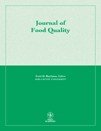
JOURNAL OF FOOD QUALITY
Innovative Research for a Healthier Food FutureThe Journal of Food Quality, an esteemed publication under Wiley-Hindawi, stands as a vital resource in the dynamic field of Food Science, established since 1977 and operating under an Open Access model since 2017. With its seat in the United Kingdom, this journal focuses on delivering high-quality research and insights pertaining to food safety, risk management, and quality assurance, reflected in its impressive Q2 ranking in both Food Science and Safety, Risk, Reliability and Quality categories in 2023. Researchers and professionals will find the journal’s contributions indispensable, particularly given its Scopus rankings that place it in the top echelons of its fields, highlighting its impact and relevance. By fostering an environment of knowledge sharing, the Journal of Food Quality not only enhances academic dialogue but also supports innovation and best practices in food research and industry applications.
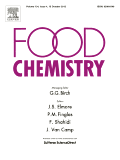
Food Chemistry
Advancing Knowledge in Food Composition and SafetyFood Chemistry, published by Elsevier Science Ltd, is a leading international journal dedicated to the publication of high-quality research in the field of food chemistry. Established in 1976, this journal has made a significant impact in its realm, with an impressive 2023 impact factor and ranked Q1 in Analytical Chemistry, Food Science, and miscellaneous Medicine categories. It currently holds a remarkable Scopus ranking of #3 in Analytical Chemistry and #11 in Food Science, signifying its relevance and prestige among the top scholarly publications. With a wide scope that includes the chemistry of food composition, flavor, and safety, Food Chemistry serves as an essential resource for researchers, professionals, and students alike, offering insights and advancements in food analysis and technology. Access options may vary, and the journal is committed to disseminating innovative findings to foster knowledge and application in the dynamic field of food science.
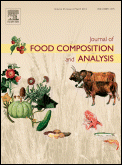
JOURNAL OF FOOD COMPOSITION AND ANALYSIS
Exploring Innovative Methodologies in Food AnalysisJOURNAL OF FOOD COMPOSITION AND ANALYSIS, published by Academic Press Inc. Elsevier Science, is a leading peer-reviewed journal in the field of Food Science, recognized for its substantial impact on advancing research and knowledge within the discipline. With a commendable Q1 quartile ranking in the 2023 category of Food Science and a Scopus rank of 86/389, this journal holds a prestigious position, emphasizing its significance in crop and food quality research. The journal's scope encompasses a wide range of studies related to food composition, nutrition, and analytical methodologies, aiming to foster innovation and knowledge dissemination in food science. Although it operates under a subscription model, it remains an essential resource for researchers, professionals, and students seeking credible and cutting-edge findings. Established in 1987, the JOURNAL OF FOOD COMPOSITION AND ANALYSIS continues to be at the forefront of food science, contributing to the understanding of food quality and nutrition standards globally.

FOOD TECHNOLOGY AND BIOTECHNOLOGY
Transforming Ideas into Impactful Food InnovationsFOOD TECHNOLOGY AND BIOTECHNOLOGY is a distinguished peer-reviewed journal published by the Faculty of Food Technology and Biotechnology, University of Zagreb, Croatia. Since its inception in 1993, this Open Access journal has become a crucial platform for disseminating innovative research in the fields of food science, biotechnology, and chemical engineering. With a commendable impact factor and consistent Q2 and Q3 rankings across multiple categories—including Biotechnology, Food Science, and Industrial Engineering—this journal not only fosters academic discussions but also addresses real-world challenges in food production, safety, and sustainability. As it converges its thematic scope from 1996 to 2024, FOOD TECHNOLOGY AND BIOTECHNOLOGY remains committed to advancing knowledge through high-quality research and interdisciplinary collaboration, making it an essential resource for researchers, professionals, and students seeking to stay at the forefront of food innovation and biotechnology.

Food Chemistry-X
Elevating Knowledge in Food Chemistry Excellence.Food Chemistry-X is a premier open-access journal published by Elsevier, dedicated to advancing the field of food chemistry through high-quality research and comprehensive reviews. With its ISSN of 2590-1575, the journal has gained significant attention since adopting an open-access model in 2019, allowing wide dissemination of knowledge and innovations in food science. Based in the United Kingdom, it holds prestigious Q1 rankings in both Analytical Chemistry and Food Science categories as of 2023, positioning itself as a leading platform for researchers worldwide. The journal's focus spans extensive topics within food chemistry, including food safety, nutritional analysis, and the chemical properties of food, offering insights that are crucial for addressing contemporary challenges in food production and consumption. With a Scopus rank placing it in the 65th percentile among the top journals in Food Science and the 58th percentile in Analytical Chemistry, Food Chemistry-X is an essential resource for academics, professionals, and students seeking to stay at the forefront of research and innovation in this vibrant field.
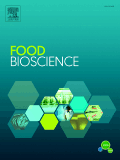
Food Bioscience
Innovating Solutions for a Sustainable Food FutureFood Bioscience is a leading peer-reviewed journal published by Elsevier, dedicated to advancing the understanding of the complex interplay between food science and biosciences. With an impressive Impact Factor that places it in the Q1 and Q2 quartiles for Food Science and Biochemistry respectively, the journal consistently ranks among the top publications in its field, reflected in its Scopus rankings (Rank #83/389 in Food Science and Rank #175/438 in Biochemistry). Since its inception in 2013, Food Bioscience has fostered a multidisciplinary approach, bridging gaps between research in agricultural, biological, and food sciences, thus encouraging innovative solutions to the pressing challenges facing the global food supply chain. Although it currently operates under a subscription model, the journal is committed to disseminating high-quality research, making significant contributions to both academic scholarship and industry practices. Researchers, professionals, and students alike are invited to explore the wealth of knowledge contained within its pages as it plays a pivotal role in shaping the future of food bioscience.
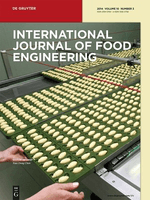
International Journal of Food Engineering
Transforming Food Science with Interdisciplinary InsightsThe International Journal of Food Engineering, published by WALTER DE GRUYTER GMBH, serves as a pivotal platform for cutting-edge research in the field of food engineering. With an ISSN of 2194-5764 and an E-ISSN of 1556-3758, this journal focuses on innovative technologies, production processes, and quality control within food systems. Located in Germany, the journal has gained notable recognition, as reflected in its Scopus rankings, which place it within the 61st percentile in miscellaneous engineering and the 50th percentile in food science. Although it operates under a traditional access model, the journal's striking category quartiles signify its importance: achieving Q2 in Engineering and Q3 in both Biotechnology and Food Science in 2023. By fostering interdisciplinary research, the International Journal of Food Engineering aims to connect scientists, engineers, and industry professionals, ultimately contributing to advancements in food safety, sustainability, and nutrition. Join a vibrant community of experts driving innovation and addressing global food challenges through your contributions to this esteemed journal.
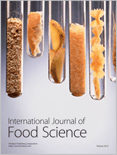
International Journal of Food Science
Empowering Research in Food Safety and NutritionThe International Journal of Food Science, published by HINDAWI LTD, stands as a crucial platform for advancing knowledge within the realm of food science. Established in 2013, this Open Access journal based in Egypt has garnered significant recognition, achieving an impressive Q2 classification in the 2023 Food Science category, which reflects its commitment to quality and impactful research. With a Scopus rank of #88 out of 389 in Agricultural and Biological Sciences and placing in the 77th percentile, this journal serves as an essential resource for researchers, professionals, and students dedicated to innovative developments and scientific exploration in food science. The journal not only provides unrestricted access to valuable research but also aims to foster collaboration and dissemination of knowledge on critical issues affecting food safety, nutrition, and technology. For those looking to keep abreast of the latest advancements, the International Journal of Food Science is certainly an indispensable addition to their academic pursuits.

Food Production Processing and Nutrition
Connecting food production and nutrition for global impact.Food Production Processing and Nutrition, published by SpringerNature, stands at the forefront of advancing knowledge in the vibrant fields of food science, nutrition, and public health. This esteemed Open Access journal, operational since 2019, plays a pivotal role in disseminating breakthrough research that intersects food production processes with nutritional insights, making it an invaluable resource for researchers, professionals, and students alike. With a commendable 2023 impact factor reflecting its robust scholarly contributions — Q1 in Food Science and Q2 in both Nutrition and Dietetics and Public Health, Environmental and Occupational Health — the journal not only emphasizes the importance of innovative food processing methods but also addresses pressing nutritional challenges faced globally. Located in the United Kingdom, it claims an impressive Scopus ranking, with a notable percentile standing across various categorical metrics. As such, Food Production Processing and Nutrition is essential for anyone aiming to deepen their understanding of how food systems impact public health through effective processing and nutritional strategies.

ACS Food Science & Technology
Fostering Collaboration in Food Chemistry and TechnologyACS Food Science & Technology is a premier peer-reviewed journal published by the American Chemical Society (ACS) that addresses the dynamic intersections of food science, chemistry, and technology. With its E-ISSN: 2692-1944, this journal aims to disseminate innovative research and comprehensive reviews that enhance understanding in fields such as analytical chemistry, organic chemistry, and general food science. Despite the absence of an Open Access model, its position in the Q2 quartile for multiple categories in 2023 underscores its significant impact on the scholarly landscape, ensuring researchers can access high-quality research pertinent to today's food challenges. With an expanding timeline of 2021 to 2024, ACS Food Science & Technology is poised to be an essential resource for advancing the scientific community's knowledge, fostering collaboration, and bridging gaps between academia and industry.